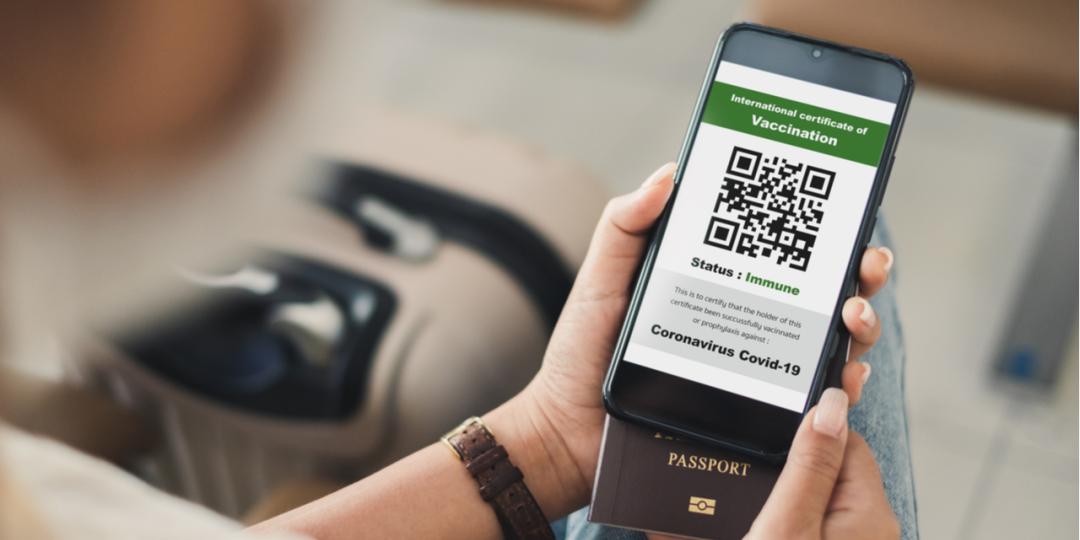Leading travel experts in South Africa and abroad are unanimous that accessible vaccine passports and common standards are necessary to boost traveller confidence and make the travel experience more seamless, especially in the all-important leisure sector.
An industry panel discussion hosted this week by Big Ambitions, featuring senior executives from the airline, retail and world travel agency industry bodies, brought the issue of a standardised global vaccine passport and a single standard to the fore.
While vaccine passports could make travel cheaper over time by eliminating the need for PCR testing, standardisation is the big issue. Are we going to be able to correctly understand international requirements, and will a South African standard be accepted?
Standards are emerging
Lars Thykier, MD of the Association of Danish Travel Agents and Tour Operators, Board Director of the European Travel Agents and Tour Operators Associations and Director of the World Travel Agents Associations Alliance, said all European Union countries had vaccine passports in place from July 1. He said the system made travel even easier than pre-trip PCR test requirements, and warned that when travellers saw travel hassles, they stayed at home. “Don't try to invent your own vaccine passports,” Thykier told authorities, encouraging countries to build on existing platforms that were proven, and to “think further than six months ahead”.
Otto de Vries, CEO of outbound industry association, ASATA, said it mattered more that countries agreed on a consistent set of standards and entry requirements than a single platform. “We are thinking too hard about this in terms of the platform. We need to focus on the standards being used. We are looking for two things: relevant information that can be easily stored, and the ability to capture that data on an app.
“The WHO has presented a set of standards, and Icao has presented a set of standards. The platforms are irrelevant as long as the standards are met.”
De Vries said travellers had become accustomed to requirements for a negative PCR test before departure, which he assumed would continue as the standards for those travellers who were not vaccinated, as well as for child travellers who might not yet be eligible for vaccination.
The panel agreed that vaccination roll-outs would be the primary driver in travel’s recovery. “Vaccination is the one thing that will change the game,” said De Vries.
Leisure leads recovery
Brian Kitchin, Comair Executive Manager: Sales, Marketing & Distribution, said corporate levels in South Africa had only returned to around 10% of pre-COVID levels so far. Andrew Stark, Flight Centre MD Middle East and Africa, had similar feedback and said many multinationals were still reluctant to confirm business trips.
However, Stark said the leisure market’s recovery had gathered speed and that Flight Centre's prediction of a five-year recovery period could be adjusted to just two years, based on current trends.
“Long haul, we have over 100 countries that accept South Africans – that is more than 50% of the world’s countries – and more than 20 international airlines flying to South Africa again. In the last eight to 12 weeks, demand has completely outstripped supply. We just can’t keep up,” Stark revealed.
But Thykier said he believed the majority of travellers were still “on the fence” and undecided about whether to travel again.
He said discussions about whether non-vaccinated individuals would be allowed to travel and access activities, events and experiences in the same way as their vaccinated counterparts, were “emotional” and would have to happen at a government level.
Thykier’s message for governments was:
- focus on vaccine roll-outs
- look at existing vaccine passports for commonality
- know what visitors need in terms of health requirements
- adopt vaccine passport solutions that don't require an app, as not every individual chooses to carry a mobile device.
No silver bullet
“The simpler, the better. The less the amount of documentation and the less the complexity (in the travel) the better,” said Kitchin. He said Comair was already navigating shorter lead times and he hoped South Africa’s vaccine targets would be achieved soon to avoid a fourth wave of infections, which would mean another three-month setback in terms of recovery.
On the subject of winning back customers and encouraging people to travel again, Kitchin said: “You need to look at flexibility and instilling the message that people can travel with confidence. It is about winning hearts and minds.”
“There is no silver bullet,” said Stark, but he commended South Africa’s inbound policy of a negative PCR test before departure for this country, which, he said, made the destination more attractive than places where more complicated systems were in place.
Stark was also confident that travel agents were up for the challenge of navigating ever-changing travel requirements on behalf of the travelling public. “Our business thrives on complexity.”























